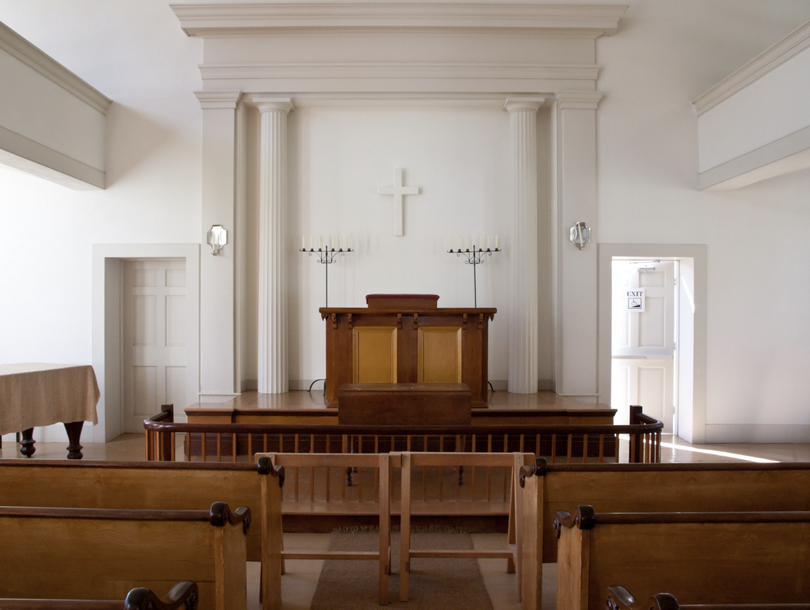"Do leaders play a vital role in the development of the church?" When I arrived at a particular church in City W, the pastor's daring spirit of exploration and consistent experimentation struck me. When I posed this question, Pastor Z, the director of the church council, responded resolutely, "Certainly, unless they are not a leader."
God has set up leaders for the church to serve as caretakers of the household of God and to tend to the flock. Different types of leaders yield vastly different outcomes in terms of church growth and development. Leaders lacking wisdom and spiritual vitality will impede the growth of the church or ministry.
A pastor from a renowned global mission organization emphasized, during a discussion on "criteria for assessing the suitability of missionaries," that those answering the call must have health in terms of spirituality, psychology, and emotions. Otherwise, they might enter the field bearing scars and inadvertently cause unexpected damage.
During my visit to a large urban church in City N, located in the eastern part of China, after the worship service concluded, I met with a ministry leader. Not long after the exchange, he expounded on the challenges facing the church and shared his sorrows and perplexities: an atmosphere of indifference among co-workers, a pulpit set too high that estranged pastors from believers, a reluctance to assume responsibilities for logistical matters that he willingly shoulder, graceless sermons, and inadequate spiritual nurturing.
Rather than pondering how to enhance logistical efficiency, it seemed that this leader should prioritize his own spirituality and emotional well-being.
In a southwestern region, after accepting the gospel from missionaries, a county became renowned for its evangelical fervor. While the number of believers was no less than that of neighboring cities, attention was drawn due to insufficient contributions and the frequent need for assistance for local pastors. Meanwhile, in nearby City B, a self-sufficient and high-quality team of pastors was established. Aside from economic disparities, the primary factor was the presence or absence of a feasible and reliable compensation system for staff workers.
"Every time they come here, I tell them to establish a system, but the results are not satisfactory," a pastor from City B expressed regret. Whenever local pastors came to learn how to build a church, they talked about their own needs. However, when it comes to implementing a genuine solution, they are unable to relinquish longstanding traditions and fail to actively explore methods to address the old practice of local believers not supporting pastors financially.
"With such a large church, are Sunday sermons and Bible study sufficient for the spiritual nourishment of believers?" I asked. "Of course not, but we can't do much about it either." Church S is a central church locally, with two to three thousand believers in attendance. However, pastoral care can only be carried out during Sunday services and Bible study gatherings, the latter of which sees an average attendance of only a few dozen people. Beyond this, there are only a few functional fellowship activities from choirs, the reception team, and the logistics team. Pastors can perceive the dearth of spiritual sustenance, and if this continues, weak ties between believers and the church will inevitably result in attrition. When these issues were raised, leaders expressed a sense of helplessness. Yet, in the local context, many churches have already initiated small group gatherings.
Presently, there are leaders who, without contemplation, rigidly adhere to conventions, waiting for a peaceful retirement, or worse, practicing a form of "retirement in office." What is more alarming is that often, by "failing to do the right thing, leaders hinder others from doing so." Driven by the fear of change and the loss of authority, they obstruct genuine servants from serving.
In contrast to the situations described above, Y Church, located in a rural area of City W, is a century-old congregation with a new main building established in the early 21st century. Pastor Z, who succeeded his father, spent over a decade expanding the church from a few dozen attendees to a regular gathering of over four hundred.
Faced with the challenges of a small congregation and a lack of spiritual depth among believers, Pastor Z decided, after visiting churches across the country, to apprentice himself to learning about small group systems. Over the course of three months, he frequently traveled between North and South China, often spending nights on airplanes. Following systematic study, he combined his prior experiences in Christian education with his pastoral doctorate studies spanning several years to establish a nurturing system based on small groups. This effectively addressed the spiritual needs of the believers.
"Unhealthy leaders cannot lead a healthy church." As Pastor Z stated, aside from professional competence, leaders must examine their own spiritual condition. Within the church, a sound supervisory and advisory framework should also be established.
During our visit, we also witnessed churches in Southeast China coming together to learn how to build churches and establish pastoral care programs.
- Translated by Abigail Wu












